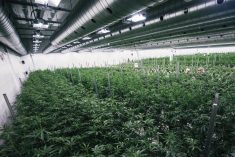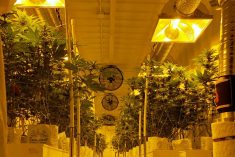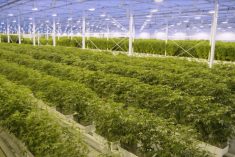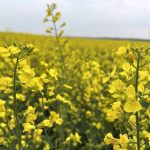In full cost-cutting mode, Canadian cannabis producer Canopy Growth Corp. is set to shed a significant chunk of its vertical integration model by selling off the retail pot shops it owns across the country.
Smiths Falls, Ont.-based Canopy announced Sept. 27 it has an agreement in place with OEG Retail Cannabis — already the owner/operators of Canopy’s franchised Tokyo Smoke stores in Ontario — to buy Canopy’s 23 corporate-operated Tweed and Tokyo Smoke stores in Manitoba, Saskatchewan, Newfoundland and Labrador.
A separate Calgary-based cannabis retailer, 420 Investments, operator of the Four20 chain in that province, has a deal to buy five Canopy-owned retail stores in Alberta and rebrand them under its own banner.
Read Also

Pulse weekly: USDA to buy US$75 million in pulses as part of support package
Pulse growers in the United States have a new market after a recently announced program from the U.S. Department of Agriculture allocated US$75 million to purchase peas, lentils, beans and chickpeas.
Canopy said the deal “reinforces (its) focus on advancing its path to profitability as a premium brand-focused cannabis and consumer packaged goods company.”
The deal with OEG would give it not only the stores but “all Tokyo Smoke-related intellectual property,” Canopy said in a release. Tweed stores going to OEG in this deal are to be rebranded as Tokyo Smoke.
Canopy would continue to own and operate the Tweed consumer brand, which includes a “vast portfolio” of products such as pre-rolled joints, drinks, edibles, whole flower, vapes, cartridges and oils, the company said.
“We are taking the next critical step in advancing Canopy as a leading premium brand-focused (consumer packaged goods) cannabis company while furthering the company’s strategy of investing in product innovation and distribution to drive revenue growth in the Canadian recreational market,” Canopy CEO David Klein said in a release.
“By realizing these agreements with organizations that possess proven cannabis retail expertise, we are providing continuity for consumers and team members.”
Canopy’s “path to profitability” has been uphill: for its fiscal year ending March 31, it booked an company-attributable net loss of $302.2 million on net revenue of $520.3 million, up from an attributable net loss of $1.74 billion on net revenue of $546 million in the year earlier.
The company in April announced a cost-cutting plan including “cultivation-related efficiencies,” facility improvements, contracting out some processing work, cutting sales and administrative costs and reducing staff headcount, with a goal of $100 million to $150 million in savings over the following 12-18 months. — Glacier FarmMedia Network
















